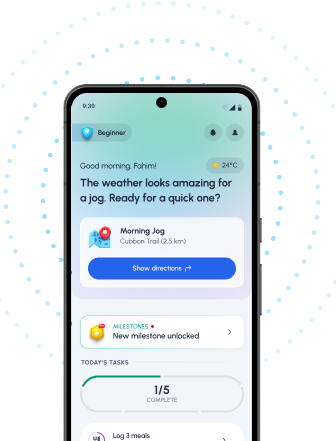Table of Contents
- Understanding Diabetes in Women: Key Differences and Challenges
- Diabetes & Women’s Health: A Comprehensive Guide
- What are the Unique Risks of Diabetes for Women?
- Managing Diabetes: Practical Tips for Women’s Health
- Is Your Diabetes Management Plan Right for You? A Woman’s Guide
- Frequently Asked Questions
- References
Living with diabetes can present unique challenges, and for women, those challenges often take on a different dimension. This isn’t just about managing blood sugar; it’s about navigating hormonal changes, pregnancy considerations, and the specific ways diabetes impacts our bodies. That’s why we’ve created this comprehensive guide: Understanding Diabetes: A Guide to Women’s Unique Health Concerns. Here, we’ll explore the intricacies of diabetes management tailored specifically to women’s health needs, empowering you to take control of your well-being. Get ready to delve into essential information that will help you thrive.
Understanding Diabetes in Women: Key Differences and Challenges
Women experience diabetes differently than men, facing unique challenges and increased risks. Research indicates women with diabetes have a 40% higher risk of heart disease compared to men with diabetes, highlighting the critical need for tailored care and awareness. This disparity underscores the importance of understanding the specific health concerns women face in managing this chronic condition.
Hormonal Influences and Diabetes Management
Fluctuating hormone levels throughout a woman’s life, particularly during menstruation, pregnancy, and menopause, significantly impact blood sugar control. These hormonal shifts can make managing diabetes more complex, requiring adjustments to medication and lifestyle strategies. For women in Indian and tropical countries, factors like dietary habits and access to healthcare can further complicate this already challenging situation. Regular checkups and close monitoring are crucial for effective diabetes management in women. As women age, these challenges can become even more pronounced, as highlighted in Managing Diabetes as You Age: Challenges and Solutions.
Diabetes and Pregnancy: Special Considerations
Gestational diabetes, which develops during pregnancy, is a significant concern for many women. This condition increases the risk of complications for both mother and baby. Early detection and management are essential to minimize potential risks. Access to prenatal care and diabetes education is particularly crucial in resource-constrained settings common in many Indian and tropical regions. Seeking expert advice from a healthcare professional familiar with managing diabetes during pregnancy is vital.
Additional Challenges in Tropical Climates
In hot and humid climates prevalent across many Indian and tropical countries, women with diabetes may face additional challenges. Dehydration can exacerbate blood sugar fluctuations, making hydration a critical aspect of daily management. Furthermore, increased sweating can impact medication absorption, requiring careful consideration of dosage and timing. Staying well-hydrated and consulting a doctor about potential medication adjustments in these conditions is essential. Recognizing the early signs and symptoms of type 2 diabetes in women is also crucial for timely intervention and management.
Diabetes & Women’s Health: A Comprehensive Guide
Diabetes disproportionately affects women in India and tropical countries, impacting their overall well-being. While statistics show that 61% of people with diabetes are aged between 20-64 years, the unique challenges faced by women often go unaddressed. This guide aims to provide crucial insights into these concerns.
Understanding the Unique Challenges
Women experience diabetes differently than men. Hormonal fluctuations throughout their lives – puberty, pregnancy, menopause – significantly impact blood sugar control. Gestational diabetes, a type of diabetes that develops during pregnancy, poses a risk for both mother and child, often increasing the likelihood of developing type 2 diabetes later in life. Furthermore, certain conditions prevalent in tropical regions, combined with lifestyle factors, can exacerbate the risks.
Managing Diabetes Effectively
Effective management requires a holistic approach. Regular blood sugar monitoring is vital, along with a balanced diet tailored to individual needs and cultural preferences. Incorporating traditional Indian or tropical fruits and vegetables, while avoiding excessive sugars and processed foods, can significantly improve blood sugar control. Regular exercise, culturally appropriate stress management techniques (like yoga or meditation), and consistent medication adherence are also crucial. For more specific tips, check out our guide on 10 Proven Tips for Effective Diabetes Management.
Seeking Support and Resources
Early detection and proactive management are key to mitigating long-term health complications. Connecting with local healthcare providers and support groups specifically tailored to women’s health and diabetes in your region is essential. Seek advice on culturally relevant dietary choices and exercise plans to create a sustainable lifestyle change. Don’t hesitate to reach out for help – you are not alone. Planning a trip? Learn how to manage your diabetes while traveling in our helpful article, Traveling with Diabetes: Essential Tips for a Safe & Healthy Journey.
What are the Unique Risks of Diabetes for Women?
Diabetes presents unique challenges for women in India and other tropical countries, often intersecting with existing health disparities. The hormonal fluctuations throughout a woman’s life, from puberty to menopause, significantly impact glucose metabolism and increase vulnerability to both type 1 and type 2 diabetes. Gestational diabetes, a form of diabetes that develops during pregnancy, is particularly prevalent in these regions, often linked to factors like genetic predisposition, poor dietary habits, and a lack of access to adequate prenatal care. This is crucial because research shows children born to mothers with gestational diabetes are 7x more likely to develop Type 2 diabetes later in life. This highlights the intergenerational impact of the disease and underscores the need for early detection and management. Indeed, understanding the potential for developing diabetes *after* pregnancy is vital. You can learn more by reading our article, Can You Develop Diabetes After Pregnancy?
Specific Risks for Women in India & Tropical Countries:
Beyond gestational diabetes, women in these regions face additional challenges. Factors such as limited access to healthcare, cultural beliefs impacting dietary choices, and higher rates of obesity and sedentary lifestyles contribute to higher diabetes prevalence. Polycystic ovary syndrome (PCOS), a common hormonal disorder among women, significantly increases the risk of developing type 2 diabetes. Furthermore, the prevalence of certain genetic predispositions in specific populations within these regions may further elevate risk. Understanding these unique risk factors is crucial for implementing targeted preventative measures and effective management strategies.
Taking Control:
Early detection and proactive management are key. Regular checkups, especially for women with a family history of diabetes or those exhibiting risk factors like PCOS, are paramount. Adopting a healthy lifestyle—including balanced nutrition emphasizing fresh produce and regular physical activity—can significantly reduce the risk. Seek advice from your healthcare professional to discuss personalized prevention and management plans tailored to your specific needs and circumstances. Early intervention is vital in mitigating the long-term health consequences of diabetes for women in India and tropical countries. It’s also important to understand how diabetes can impact fertility; for more information, see our article on How Does Diabetes Affect Fertility? Insights and Tips.
Managing Diabetes: Practical Tips for Women’s Health
Managing diabetes effectively is crucial for women, particularly in Indian and tropical countries where the prevalence of the disease is rising rapidly. According to the IDF Diabetes Atlas, the number of people with diabetes is projected to increase from 536.6M in 2021 to 783.7M in 2045, a significant public health concern. This highlights the urgent need for women in these regions to prioritize diabetes management.
Nutrition and Lifestyle Adjustments
Dietary choices are paramount. Traditional Indian and tropical diets often include high carbohydrate foods, which can impact blood sugar levels. Focusing on whole grains, lean proteins, plenty of vegetables, and limiting processed foods and sugary drinks is vital. Regular physical activity, even short bursts of exercise throughout the day, is also crucial for managing weight and improving insulin sensitivity. Consider incorporating yoga or other culturally relevant forms of exercise into your routine. For more detailed tips, check out 10 Proven Tips to Effectively Manage Diabetes | Simple Guide.
Hormonal Considerations
Women face unique challenges due to hormonal fluctuations throughout their lives, impacting diabetes management. Menstrual cycles, pregnancy, and menopause can all affect blood sugar control. Regular check-ups with your doctor are crucial to monitor these changes and adjust your treatment plan accordingly. Open communication with your healthcare provider is key to navigating these hormonal shifts effectively.
Seeking Support
Building a strong support system is essential. Connecting with other women living with diabetes, whether through support groups or online communities, can provide valuable emotional and practical support. Remember you are not alone in this journey. In Indian and tropical contexts, family and community support can play a vital role in successful diabetes management. Consider seeking advice from local health professionals familiar with the unique challenges faced by women in your region. Avoiding common mistakes is also crucial; learn more by reading about 5 Common Mistakes People Make in Managing Diabetes.
Is Your Diabetes Management Plan Right for You? A Woman’s Guide
Managing diabetes effectively is crucial, especially for women in Indian and tropical countries where unique challenges exist. Are you achieving optimal blood pressure control? For people with diabetes, the target is generally below 140/90 mmHg, though some guidelines recommend aiming for below 130/80 mmHg. Maintaining blood pressure within these ranges is vital to prevent serious complications. This isn’t just about numbers; it’s about protecting your long-term health.
Understanding Your Unique Needs
Women often face hormonal fluctuations impacting blood sugar levels throughout their lives – menstruation, pregnancy, and menopause. These changes can make diabetes management more complex. Furthermore, factors like access to healthcare and dietary habits prevalent in Indian and tropical climates play a significant role. Lifestyle plays a key role in managing diabetes, and making informed choices is essential for women in these regions. Managing cholesterol is also critical, so it’s worth reading our guide on How to Manage Cholesterol Levels with Diabetes?
Actionable Steps for Better Management
Regular check-ups with your doctor are paramount, ensuring your blood pressure remains within the recommended range (ideally below 130/80 mmHg). Discuss any concerns you may have about your current diabetes management plan and explore strategies for improving your health outcomes. Integrate diabetes-friendly recipes and exercise routines into your daily schedule. Consider joining a local support group for women with diabetes to share experiences and learn from each other. Remember that a Personalized Diabetes Control can significantly improve your results.
Taking Control of Your Health
Prioritizing your health is an investment in your future. Don’t hesitate to seek advice and support from healthcare professionals. By proactively managing your diabetes, you can live a fulfilling and healthy life, even in the face of unique regional challenges. Schedule an appointment with your doctor today to discuss your blood pressure and overall diabetes management plan.
Frequently Asked Questions
Q1. How does diabetes affect women differently than men?
Women experience unique challenges with diabetes due to hormonal changes during menstruation, pregnancy, and menopause, impacting blood sugar control. These hormonal fluctuations require tailored management strategies.
Q2. What are the risks of gestational diabetes?
Gestational diabetes poses risks to both mother and child, including increased chances of the mother developing type 2 diabetes later in life. It’s crucial for pregnant women to monitor their blood sugar levels closely.
Q3. What are some challenges faced by women with diabetes in India and tropical countries?
In these regions, limited healthcare access, traditional dietary habits, and climate-related factors like dehydration and medication absorption issues can complicate diabetes management.
Q4. How can women effectively manage diabetes?
Effective management involves early detection through regular checkups, maintaining a balanced diet, incorporating culturally appropriate exercise (like yoga), and building a strong support system.
Q5. What is the importance of personalized diabetes management for women?
Personalized plans are vital because hormonal changes and other factors necessitate tailored approaches to effectively manage blood sugar levels and mitigate long-term health complications.
References
- A Practical Guide to Integrated Type 2 Diabetes Care: https://www.hse.ie/eng/services/list/2/primarycare/east-coast-diabetes-service/management-of-type-2-diabetes/diabetes-and-pregnancy/icgp-guide-to-integrated-type-2.pdf
- Your Guide to Diabetes: Type 1 and Type 2: https://www.niddk.nih.gov/-/media/Files/Diabetes/YourGuide2Diabetes_508.pdf




